IQHQ Project is Latest in Efforts to Bring Bustling Life Science Industry to Downtown Area
Biotech-focused investment and development firm IQHQ has acquired the office component of an existing mixed-use development site, joining others hoping to capitalize on a growing industry by creating a $1.5 billion life science hub on the downtown San Diego waterfront.
San Diego-based IQHQ, a year-old real estate investment trust led by longtime biotech developer Alan Gold, announced Monday it had acquired the 8-acre site that is part of the larger Manchester Pacific Gateway, a mixed-use development underway on U.S. Navy-controlled property by local developer Douglas Manchester.
Financial terms were not disclosed by IQHQ or Manchester’s company, Manchester Financial Group.
IQHQ has started infrastructure work on a project that is planned to span more than three city blocks, and it has rebranded the office site as the San Diego Research and Development District, or the RaDD.
Developers anticipate completing the first phase by summer 2023, though tenants have not been announced. The site has been entitled for new office, lab and supportive retail space.
IQHQ President Tracy Murphy told CoStar News that San Diego is already the nation’s third-largest life science market, and the industry is experiencing growing demand for new office and laboratory space. The developer is counting on the waterfront location, with access to ample nearby public transit and other downtown amenities, to bring companies to the urban setting.
The waterfront acquisition is the first in San Diego for the fledgling IQHQ, and Murphy said the company has “an opportunity to create the first truly urban waterfront campus dedicated to the advancement of life sciences” in the region. Its aim is similar to that of developers in the Seaport District in Boston, where IQHQ has acquired properties for developments now underway.
This is the third large San Diego biotech-focused initiative to be announced by various developers in recent weeks. Retail property owner Regency Centers last week received Planning Commission approval for up to 400,000 square feet of new research-and-development offices, as it partners with biotech developer Alexandria Real Estate Equities to revise its planned renovation of Costa Verde Center in the University Town Center neighborhood.
Also, developer Stockdale Capital Partners announced it is pitching its planned overhaul of the former Westfield Horton Plaza mall in downtown San Diego to potential life science office and lab tenants along with other technology-oriented companies, as developers seek to create what is also vying to be downtown’s first significant biotech presence.
Life Science Growth
Biotech and other technology companies for decades have gravitated primarily to suburban office campuses to the north of downtown, including UTC, Sorrento Mesa and coastal La Jolla’s Torrey Pines neighborhood. Local brokers have long noted that downtown faces considerable challenges in breaking those trends, though snagging just one or two prominent biotech companies could help lead to creation of a new regional cluster over time.
“The biotech world is very communal, and the talent seems to really enjoy conglomerating in the Torrey Pines, north UTC and Sorrento areas, so it will take a unique company to pioneer their way out of what’s considered the right area to be located,” Jason Hughes, president of tenant-focused brokerage firm Hughes Marino, told CoStar News.
“That being said, a large corporate pharma company like Bristol Myers Squibb, with other urban locations around the world, may find downtown less risky than others,” Hughes added, noting downtown could be a selling feature for attracting biotech talent given its residential density, food and entertainment options and location near the airport and mass transit.
“The challenge will be finding the first mover to validate the area for others,” Hughes said.
Developers and city officials now see a chance for downtown to get a share of the nationwide growth in life science, a sector where demand was already steadily rising before the coronavirus pandemic but has now accelerated as multiple firms nationwide seek to develop vaccines and treatments for COVID-19.
The city has high hopes for the IQHQ project, located on a waterfront site where commercial development has been in planning for nearly two decades but has yet to move forward. Mayor Kevin Faulconer said in a statement that the IQHQ project “will transform our waterfront and bring top-tier life science companies to downtown.”
Formed last year, IQHQ is led by founder and Executive Chairman Gold, who earlier founded San Diego-based BioMed Realty Trust and sold it to private equity giant Blackstone Group in 2016 for $8 billion. Earlier in his career, Gold was on the founding executive team at Pasadena, California-based Alexandria, now the nation’s largest owner of biotech real estate.
IQHQ earlier this year completed a $770 million capital raise intended to support property acquisitions and developments in life science hubs, including the three largest in the United States: Boston, San Francisco and San Diego.
The Manchester Pacific Gateway project has been in the works for almost 20 years, after facing various legal, environmental and other challenges. Manchester Financial Group recently completed a new building housing the Navy’s Southwest regional headquarters off North Harbor Drive near Broadway. The 17-story building replaces several older Navy buildings on the site that have been razed, and the Navy is set to occupy the 373,000-square-foot building next month, according to a statement from Manchester.
After the sale to IQHQ, Manchester Financial is expected to retain two blocks spanning 4 acres of the development, where it is planning a 1,035-room waterfront hotel and 1.9-acre public plaza. Hotel branding has not been announced, but Manchester Financial officials projected that Pacific Gateway at full build-out will house up to 4,000 workers and generate $50 million in new taxes for the region.
Recent life science-related announcements come as downtown San Diego is facing historically high office vacancy rates amid the pandemic, as employees work from home and tenants put expansion plans on hold. CoStar data shows the current downtown office vacancy rate at 20.8%, and Hughes said his firm’s data shows the availability rate, which includes subleasable and soon-to-be-vacated space, is its highest in at least 30 years at 34%.
“Without a life science industry gift to downtown, landlords will be in for a very difficult five-plus-year period of extremely discounted rents just to cover their operating expenses,” Hughes said.
For the Record
Rick Reeder of brokerage Cushman & Wakefield represented seller Manchester Financial Group in the recent transaction involving the downtown San Diego development site. Buyer IQHQ represented itself.

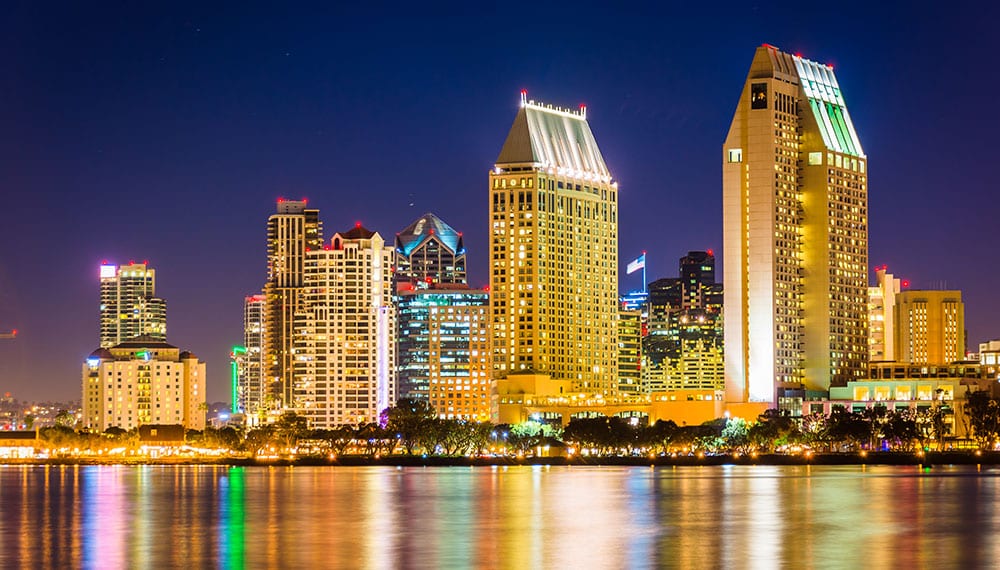
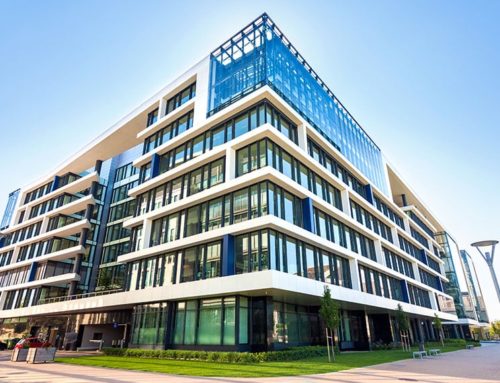
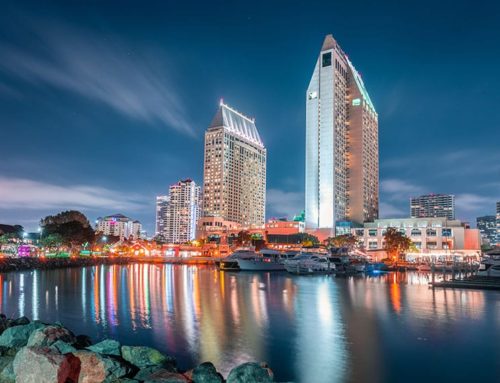
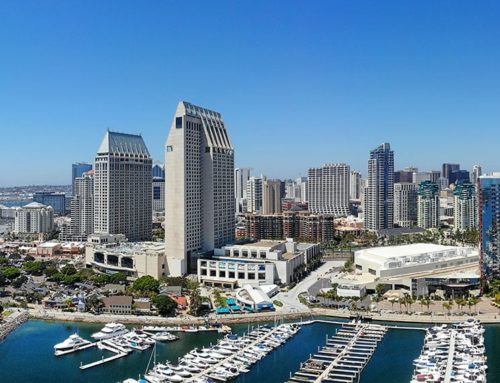
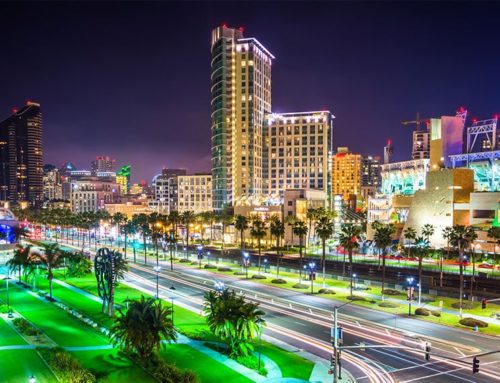
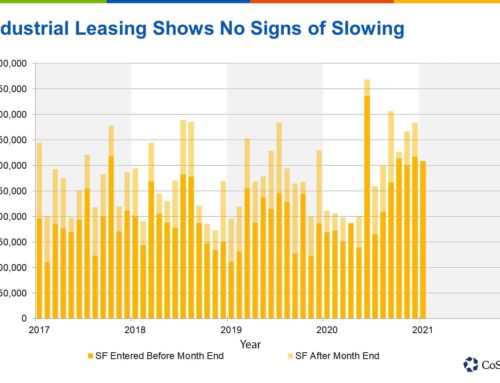
Leave A Comment